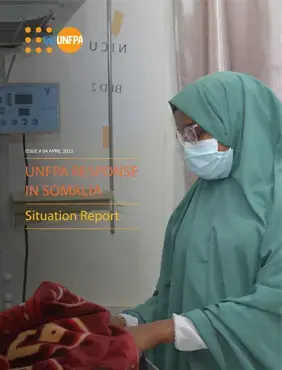Six areas across Somalia are facing the risk of localized famine if the April to June gu’ rains fail as projected. This is according to the latest Integrated Phase Classification (IPC) and Famine Risk analyses by the Food Security and Nutrition Analysis Unit and partners (FSNAU). Simultaneously, food prices continue to sharply increase, while humanitarian assistance inadequately scaled up to meet the increasing needs of the most vulnerable populations. According to FAO-SWALIM, scattered and light gu’ rains were reported in the southern parts of Somalia; however, the northern parts remain dry. Health partners are reporting a spike in suspected AWD/cholera and measles cases, due to contaminated water consumption, poor access to food, health facilities, and hygiene and sanitation services, specifically in Baidoa, Marka, and Afgooye districts.
The situation of vulnerable women and girls in the drought-affected areas is likely to further worsen, due to existing gaps in access to and availability of Sexual and Reproductive Health (SRH) and Gender-Based Violence (GBV) services. There is a growing need for cash and voucher assistance across the country, as a result of people losing their livelihoods. The need similarily correlates with peoples inability to secure basic materials, such as menstrual hygiene and sanitary items, and respond to urgent protection needs. At the same time, it is critical to facilitate women and girls’ access to safe birth, Clinical Management of Rape (CRM) for GBV survivors, psychosocial support, safety and security, justice and legal aid and socio-economic support.
In response to the worsening drought, UNFPA Somalia has scaled-up life-saving health and GBV services, targeting vulnerable women and girls, Internally Displaced Persons (IDPs) and Persons with Disabilities (PwD). During March 2022, UNFPA and its partners reached 52,849 persons with SRH services and 22,666 persons with prevention and response to GBV, including Mental Health and Psychosocial Support (MHPSS) for women and girls. In addition, UNFPA reached 1,910 young people through youth-related activities.
The capacity of UNFPA partners is further strengthened to support the delivery of SRH and GBV services, and responding to increasing needs. Health facilities and mobile clinics are providing services to support maternal and newborn health, birth-spacing options, and the CMR. Safe spaces for women, girls and young people, and one-stop centers for survivors of GBV are offering MHPSS services.


